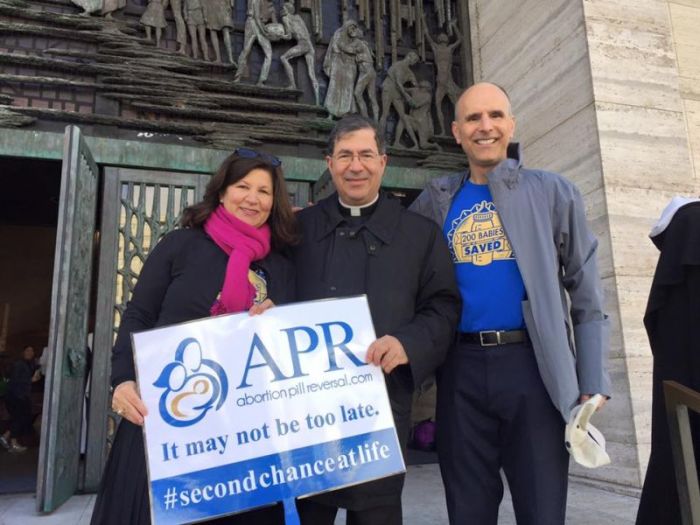Journal Withdraws 'Abortion Reversal' Study 'Pending Technical Corrections'

An abortion reversal study has been temporarily withdrawn from a medical journal after a complaint from a university where part of the study was conducted.
Issues in Law and Medicine, a peer-reviewed journal which published a study in April showing progesterone could be successfully used to reverse the effects of the mifepristone pill used in medical abortions, has temporarily withdrawn the study "pending technical corrections."
The temporary withdrawal of the study, "A Case Series Detailing the Successful Reversal of the Effects of Mifepristone Using Progesterone," was first reported by Retraction Watch.
The study was co-authored by San Diego doctor, George Delgado, who is described by pro-life group Heartbeat International as the face of the Abortion Pill Reversal Network, which has helped over 450 mothers rescue their babies from an in-progress chemical abortion.
Women for Delgado's study were recruited through the network's 24-7 helpline which as of April has been operated by Heartbeat International, according to a release from the organization.
For a medical abortion to be successful, women seeking to end a pregnancy must first take mifepristone and later misoprostol to complete the process.
Subjects in Delgado's study, fielded from the United States and from several other countries, had taken mifepristone, but had not yet taken misoprostol.
They called the hotline seeking to reverse the effects of the mifepristone and were referred to physicians and mid-level practitioners in their respective geographic areas for treatment.
The study concluded that: "The reversal of the effects of mifepristone using progesterone is safe and effective."
A report from BuzzFeed News said the University of San Diego — which employs two of Delgado's coauthors — launched an investigation into the study's ethical approval in May.
Pamela Payton a spokesperson for the university said the school asked the journal to withdraw the study because it had "ambiguous" wording regarding the university's ethics board, "leading many readers to incorrectly conclude that the [school] reviewed and approved the entire study."
Payton said the ethics board had only approved analyzing preexisting data, not collecting it.
"There is a misrepresentation of what the university approved, and what we did," Payton said.
Delgado told BuzzFeed News that his team would "redo" the ethics review noting that: "There were no ethical issues at all."
Daniel Grossman, a professor in the Department of Obstetrics, Gynecology, and Reproductive Sciences at the University of California, San Francisco told the publication that he has ethical concerns about the paper.
"It is unclear if patients underwent informed consent and if they knew the treatment they received was experimental," he said.
In a statement from the Culture of Life Family Services where he serves as medical director, Delgado explained in April that progesterone, the hormone essential for the maintenance of a normal, healthy pregnancy, is a safe and effective way to reverse their medical abortions. His study showed as much as a 68 percent success rate in reversing medical abortions that had been started.
"Women who change their minds after starting a medical abortion now have a second chance at choice," he said. "Using progesterone to reverse the effects of mifepristone is effective and does not increase the risks of birth defects."
The American Congress of Obstetricians and Gynecologists argue however that these continued pregnancies could have been simply the result of improper use of the abortion pill.
"Claims regarding abortion 'reversal' treatment are not based on science and do not meet clinical standards. The American College of Obstetricians and Gynecologists (ACOG) ranks its recommendations on the strength of the evidence, and does not support prescribing progesterone to stop a medical abortion," the organization said in a statement last summer.
"Yet, politicians are pushing legislation to require physicians to recite a script that a medication abortion can be 'reversed' with doses of progesterone, and to steer women to this care. Unfounded legislative mandates represent dangerous political interference and compromise patient care and safety," the group added.




























